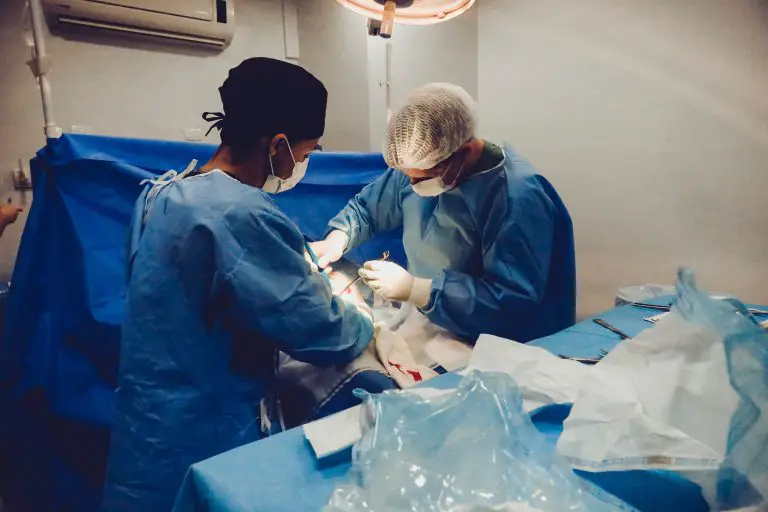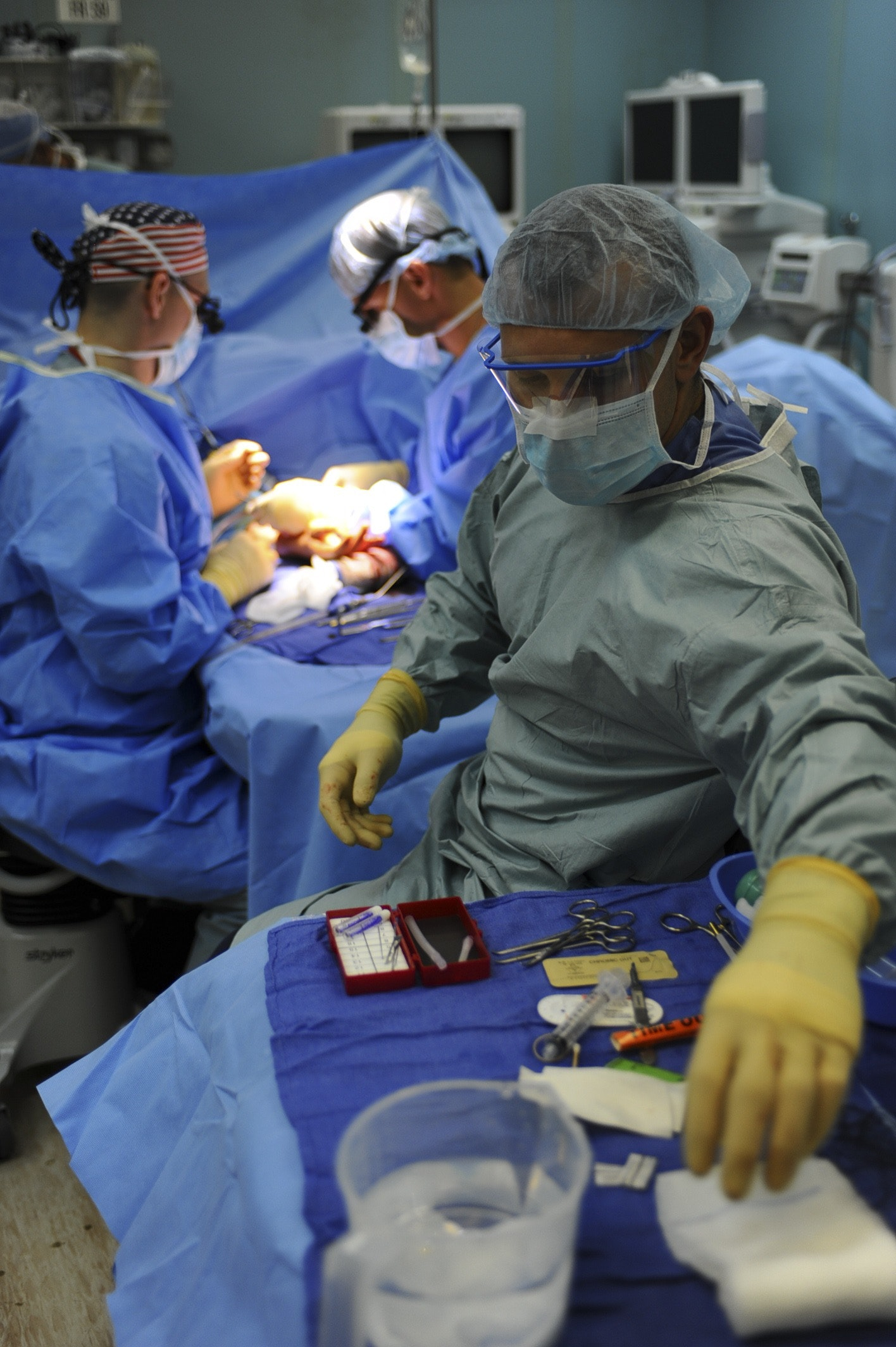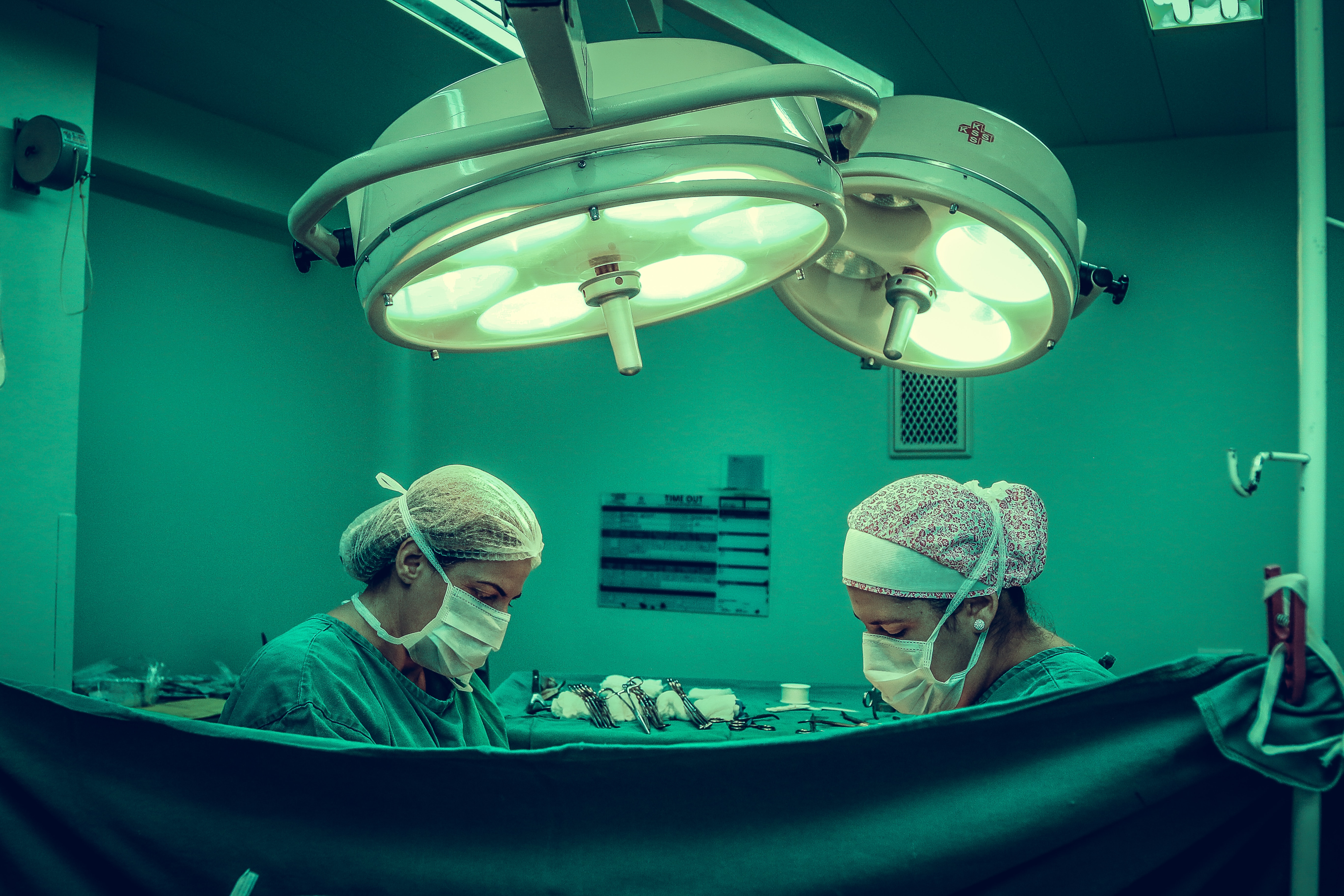
Page Contents
Having surgery can be stressful enough all on its own. However, if you’ve heard that anesthesia may cause hair loss, it may make you even more worried about getting a procedure done.
Unfortunately, anesthesia can cause hair loss, but there are also a few other things that can make hair loss after surgery even worse.
You shouldn’t lose hope about your hair growth, though, as there are things you can do about hair loss caused by surgery.
Anesthesia And Hair Loss
The purpose of anesthesia is to prevent you from experiencing pain when you need to have surgery or some other type of procedure that would otherwise be painful.
Depending on the type of anesthesia used, many general anesthetics do this by preventing the ‘pain signals’ from passing between your body and brain. Sometimes blocking these nerve signals also inadvertently makes it hard for other things to get through.
This can include preventing the oxygen molecules from being about to get through a certain membrane by slowing down the body’s cellular processes. This means your hair follicles may not be able to get enough oxygen while you are undergoing surgery with anesthesia.
The hair follicle needs oxygen just as much as the rest of your body does. The longer your procedure is, the more likely your hair follicles are going to be damaged.
Depending on just how much damage is done, you may have sudden hair loss immediately after surgery, or it may be a few weeks later that you notice hair thinning.
Can You Prevent Hair Loss From Anesthesia?
Though there is no way to entirely guarantee you won’t get hair loss after surgery, there are preventative measures you can take to limit how much your hair follicles suffer.
For example, if you can do so, a good thing to do would be to wash your scalp with a shampoo that is formulated to increase the blood supply to the scalp. This can help ensure that your hair follicles get extra oxygen before your surgery.
Unfortunately, you don’t always have forewarning if you are going to have surgery. For example, if you end up in a car accident and are rushed to the hospital and need to have surgery immediately, you aren’t going to have time to take any preventative measures beforehand.
That said, when your operation is over, you can still help your hair follicles to prevent post-surgery hair loss. If you can take a bath afterward or wash your hair, do so as soon as possible, using something with caffeine or peppermint that will increase the blood going to your scalp.
Getting oxygen to the hair follicle as soon as possible may help reduce how bad the damage to it is. So, if you can’t take a bath or wash your hair, see if you can just use peppermint oil on your scalp or even just massage your head as much as you can to get the blood flowing to it.
Exercising both before and after, if possible, will also get your blood pumping to your scalp, which has a direct relationship with how much oxygen is moved around your body.
Other Reasons You Might Have Hair Loss After Surgery

Though it is possible for anesthesia to cause hair loss, this is actually not the most common cause of hair loss after having an operation. There are other factors that can cause this as well, which I will go over with you.
On top of these things, it is also important to note that it is entirely possible that certain medications you are prescribed after your surgery can cause you to experience hair loss.
For example, beta-blockers are often prescribed to control your heart rhythm and reduce high blood pressure after an operation. Unfortunately, beta-blockers are also known to put you at an increased risk of hair loss.
In this case, it can be easy to assume that it is your surgery that caused your hair loss when, in actuality, it is the beta-blockers.
Physical Stress
There are many factors about surgery that can cause physical stress. First of all, there is always some reason you are having the operation. If this is because of liver problems, fractured bones, or something else, your body was already in a state of stress before the procedure.
The fact is that your blood can only focus on so many tasks at once. Healing is something that takes up a lot of your body’s focus, especially if you’ve had a major surgery. Your hair growth is low down on the list of your body’s top priorities.
This means that your hair is one of the first things that will suffer if your blood flow is being directed to heal an injury. This can trigger telogen effluvium, which is where your hair enters the resting phase of the hair growth cycle and the hair strand falls out.
It will stay in the resting phase until it can start getting nutrients again. Telogen effluvium hair loss is probably the most common reason people lose hair after having surgery.
Emotional Stress
Any type of stressful event can cause hair shedding, even if no physical stress is caused. This is also called telogen effluvium because it causes hair shedding to happen during the telogen phase of your hair cycle, just like what happens with physical stress.
Surgery can cause emotional stress for many reasons. You may be worried about the procedure itself, how you will pay for it, how you will do things for yourself as you recover, or any number of other things.
It is because of emotional stress like this that people who are kidnapped or survive a plane crash etc., often have excessive hair shedding a few weeks to even a few months after the event. Telogen effluvium can happen even with no physical injuries whatsoever.
Positional Alopecia
Positional alopecia, also called pressure alopecia, is where your head rests on the same part of your head for so long that it cuts off circulation to that spot. Think of it like when you sit on your leg or lay on your arm.
During an operation, the general anesthesia keeps you perfectly still. This means that, during a long operation, your follicles in that area are cut off.
This is why pressure alopecia causes excessive shedding in that one specific area, which often looks far worse than telogen effluvium, which is most often diffuse thinning over your whole head. The longer your operation is, the more likely this is to happen.
Scalp Surgery
Any surgeries on your scalp will involve an incision line as well as stitches or something else to close the site back up. This causes permanent hair loss in the areas that are scarred as your skin and hair follicles are permanently damaged.
How To Prevent Surgery-Related Hair Loss

There are a ton of ways to treat hair loss and prevent it. Though it isn’t always preventable, even with the things I’m about to share, these things will help you regrow hair you may lose.
Encourage Circulation
As mentioned, to treat hair loss caused by anesthesia, you should increase the circulation to your hair follicles.
For positional alopecia, you can help hair regrowth by encouraging circulation to go back to that area when your surgery is over.
If you are put on bedrest, try to make sure that you don’t spend too much time laying back on your head in one position.
Diminish Stress
Unfortunately, there is not a lot you can do about the physical stress an operation of any type will put on your body. What you can do is make sure your body is getting everything it needs to heal.
As mentioned, your body is going to prioritize your injury. So, if you only have the nutrients you need to heal that, none is going to be given to your hair.
Therefore, if you want healthy hair growth, you’re going to have to be extra careful to have a healthy diet that has plenty of nutrients. Vitamins and minerals will help your recovery process and help prevent post-surgical hair loss from general anesthesia.
Another thing that will help with hair growth is getting the proper amount of sleep, which may also help with your emotional stress. Trying to avoid worrying may be impossible, but you should try to make time to relax.
Use Hair Loss Treatments
There are too many hair loss treatment options to name, all of which are formulated to help you achieve new hair growth. Search for an option that has ingredients proven to help your hair cells in some way.
Some treatments for thinning hair include:
Minoxidil
Folexin
Microneedling
Hair growth shampoos and other products
Final Thoughts
Fortunately, most cases of hair loss after surgery usually resolve themselves with time. Temporary hair loss caused by telogen effluvium can still be worrying, though.
If you have excessive hair loss, or your hair stays in the telogen stage for longer than six months to a year, you may need help from your doctor to get it back to its normal hair cycle.
Have you had hair loss due to general anesthesia? Was there something particular that helped with your hair loss? I’d love to know in a comment!






